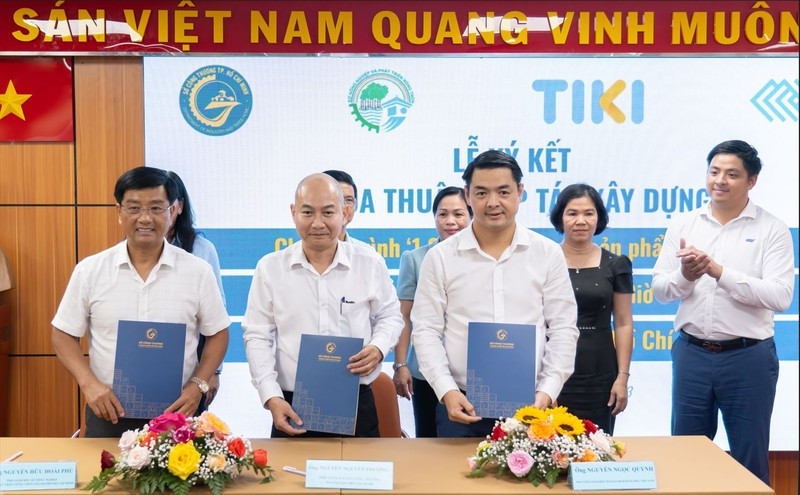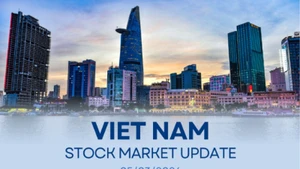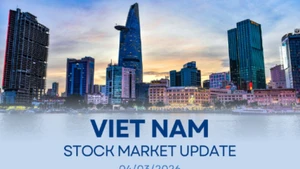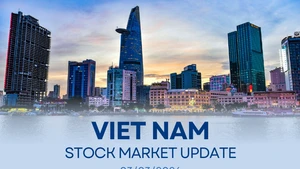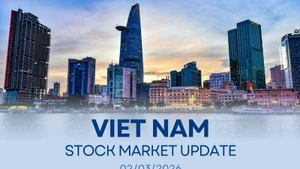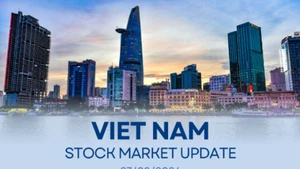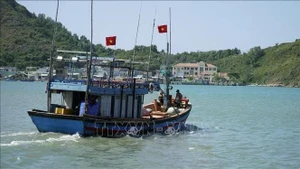The largest pork consumption market in the country
Ho Chi Minh City is currently the largest pork consumption market in the country. Every day, the citizens consume about 9,000 pigs in weekdays and about 10,000 pigs in two weekends.
Ho Chi Minh City's pork market has a scale of nearly 20,000 billion VND per year. However, traders account for 85% of transactions and play a dominant role in pricing in the market. Farmers and consumers are always in a passive position.
In addition, the market still faces many limitations such as the asynchronous quality, specifications and standards of the products. The slaughtering has been still conducted manually, not ensuring epidemiological hygiene, food hygiene and safety.
At the signing ceremony, Deputy Director of Ho Chi Minh City Department of Industry and Trade Nguyen Nguyen Phuong said the trading floor, with modern technology and operation, is expected to help both breeders and consumers are not subject to price manipulation as well as protect their interests and improve food safety and hygiene. The scale of the city's livestock industry will be gradually deepened, he added.
Modern model in the world applied
Under the cooperation agreement, the agencies will study, develop and operate the pork trading floor in Ho Chi Minh City in the form of spot trading contract and futures contract for pork.
The trading floor will be formed and developed based on the infrastructure of the MXV, including, but not limited to, trading system; payment system; clearing centre; freight forwarding centre; and the provision of market information and transaction of all types of contracts according to international standards.
 |
| An overview of the signing ceremony. |
Deputy General Director of the MXV Nguyen Ngoc Quynh said compared to the traditional business method, the pork trading floor will be different in the organisational model, operation and modern technology infrastructure applied into the transactions. These are lessons learned from the largest pork markets around the world.
The plan will be carried out in three stages: bilateral bid trading, centralised spot trading and centralised forward trading. In all stages, it is essential to have an independent unit for traceability, control of quantity and quality, and effective logistics and storage systems.
The major commodity exchanges around the world have been expressing their aspiration to support the MXV and the relevant departments to form and operate the pork trading floor effectively and gradually modernise the livestock industry chain in the city in particular and in Vietnam in general, noted Quynh.
Putting the citizens’ interests first
Since 2018, the Ho Chi Minh City People's Committee has planned and approved a policy to allow the Department of Industry and Trade to assume and coordinate with relevant departments and agencies to study the development of the pork trading floor.
Chairman of the Board of Members of Ho Chi Minh City State Financial Investment Company (HIFC) affirmed the formation of the pork trading floor will put the interests of the citizens first. Participants should quickly study and develop a plan to put the floor come into operation soon.
Basically, the livestock industry in Ho Chi Minh City has been developing towards the trend of full automatic slaughtering and meat preservation by refrigerated vehicles.
The pork trading floor is expected to effectively contribute to helping the city implement a modern livestock plan, gradually reduce spontaneous breeding, and build cattle and poultry slaughtering facilities on an industrial scale. More importantly, this is an important basis for the formation of a pig farming industry for neighbouring provinces towards sustainable industry.
